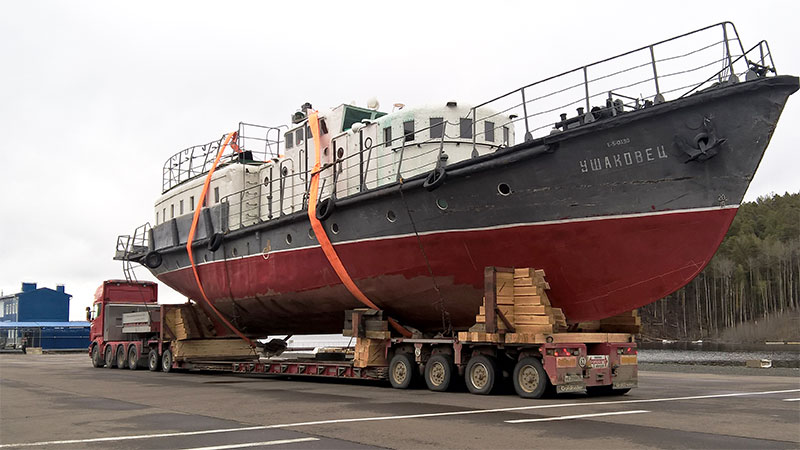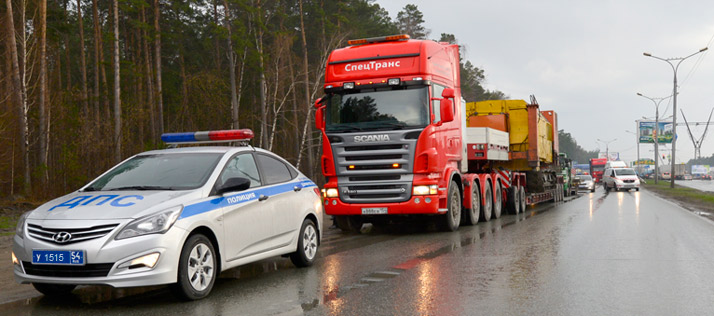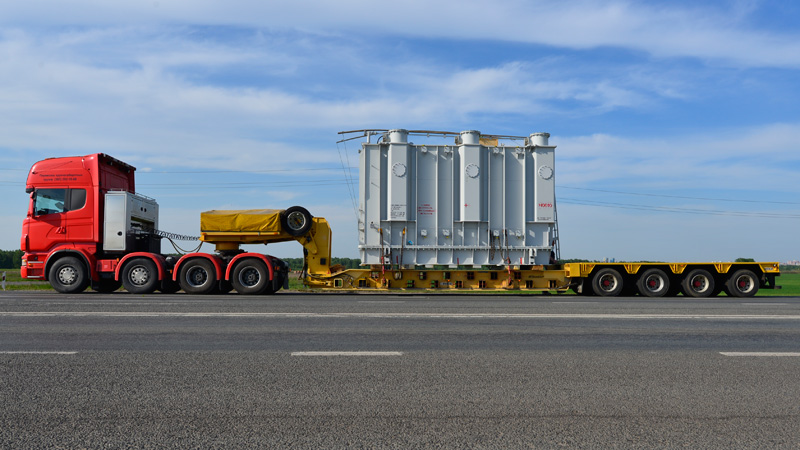- News
- About Us
- Services
- Connect us
Our contacts
Addresses:
- Vessel positions online
- Knowledge base
 English
English

Transportation of oversized cargo is the process of delivering goods that cannot be transported by standard vehicles due to their size, weight or shape. Typically, oversized cargo is considered to be cargo whose dimensions exceed standard transportation standards, for example, a length of more than 12 meters, a width of more than 2.5 meters or a height of more than 4 meters. There may also be oversized cargo that has a non-standard shape or requires special packaging or handling.
Transportation of oversized cargo requires a special approach and specialized equipment. For this purpose, special vehicles are used, such as heavy trucks, low-load trailers, manipulators, cranes and other equipment. In addition, it is necessary to carry out preliminary assessment and planning for the transport of oversized cargo to determine the optimal route, select the appropriate vehicle and ensure the safety of the cargo throughout the entire logistics chain.
One of the most important tasks when transporting oversized cargo is ensuring safety. Transporting such goods can be dangerous both for the cargo itself and for the environment and people. Therefore, it is necessary to take all precautions when transporting oversized cargo, such as using special packaging, securing the cargo on the vehicle, choosing a safe route, etc.
In addition, the transport of oversized cargo may require special permission or license from local authorities such as road authorities, customs authorities or other regulatory authorities. This is due to the fact that transportation of oversized cargo can lead to traffic restrictions on the roads, damage to the road surface, violation of traffic rules and other problems.


Transporting oversized cargo usually requires more time and resources than regular cargo transportation. This is due to the need for additional training, the selection of specialized vehicles and the completion of all necessary formalities. In addition, transporting oversized cargo can be more expensive than regular cargo transportation due to the need for specialized equipment and additional services.
In general, the transportation of oversized cargo requires more careful preparation and organization than regular cargo transportation. It is important to choose a reliable and experienced carrier that has specialized vehicles and equipment, as well as the necessary experience and knowledge to carry out the safe and efficient transportation of oversized cargo.
Improper logistics planning can lead to problems along the entire cargo delivery route, including discrepancies between departure and arrival locations, additional costs for repacking cargo in the warehouse, and other situations.
Transporting oversized cargo can face a number of problems that can slow down or stop the transport process.
Our company has extensive experience in solving all sorts of problems that sometimes arise when transporting oversized cargo. For example:
We always calculate and think through air transportation in such a way as to deliver your cargo quickly and without problems. At the same time, we adhere to simple rules:
Consolidated cargo is a batch of small-sized cargo transported by one vehicle in a given direction for different customers. This type of transportation is cheaper for small-sized cargo than by separate vehicles.
Container transportation is a modern type of cargo delivery, in which containers and reusable containers are used for transportation, which allows you to ensure the safety of goods and quickly change the type of transport at transshipment points.
Project transportation is a complex of transport and logistics services that allows you to deliver a large object (plant, factory, production line) and ensure simultaneous clearance of all vehicles transporting components of the object through customs in the country of arrival.


By clicking the “Send” button, you automatically consent to the processing of your personal data and accept the terms User Agreement.